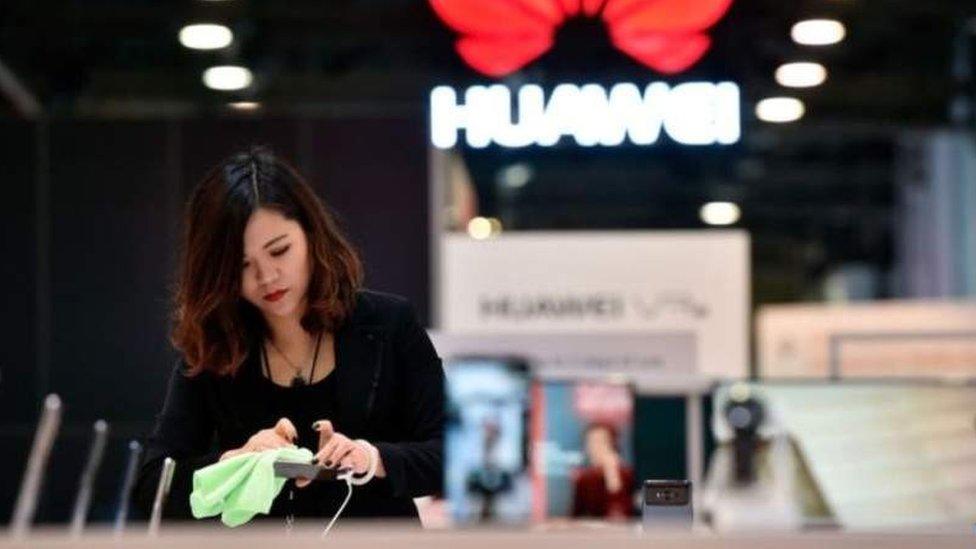O2 to launch 5G network in UK in October
- Published
- comments
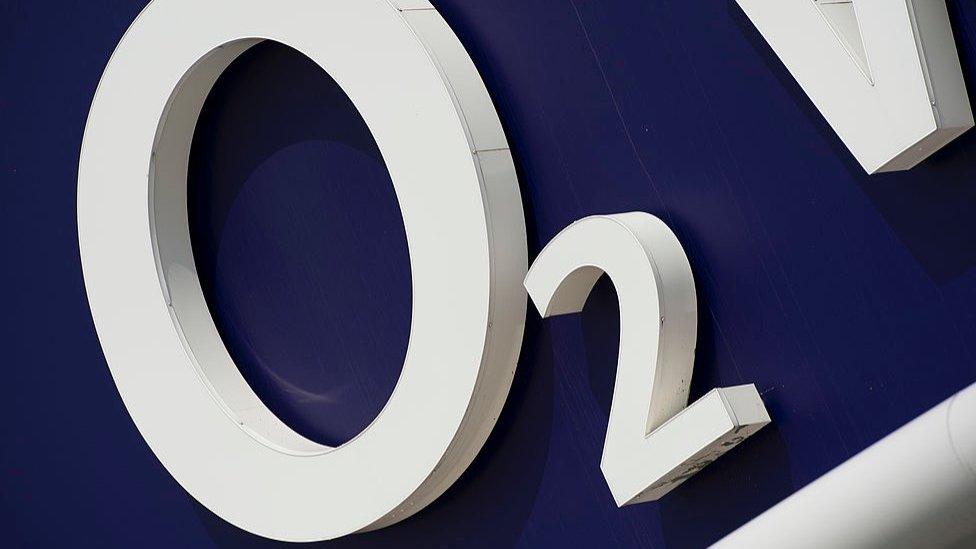
O2 has announced it plans to turn on its 5G mobile network in October.
It intends to launch the next-generation service in Belfast, Cardiff, Edinburgh, London, Slough and Leeds and then expand to a total of 50 towns and cities by summer 2020.
It will be the last of the UK's network coverage providers to roll out 5G.
However, it will be the only one to do so without using equipment from the embattled Chinese telecoms equipment-maker Huawei.
O2 is owned by Spain's Telefonica, which has used Huawei's infrastructure in some of its other networks.
Moreover, O2 trialled some of Huawei's 5G radio access network gear at cell towers in the UK before deciding to opt for rival products from two vendors it had already used to deliver 4G.
"We respect all three operators, they were thorough in their submissions," O2's chief executive Mark Evans told the BBC.
"But we were convinced that the best choices for us at this time are our current partners, which are Ericsson and Nokia."
The announcement comes the same week that the UK formally postponed a decision on whether to ban or allow Huawei to be used within any of the UK's 5G networks.
The US has been putting pressure on the government to exclude the Chinese firm claiming that it poses a risk to national security - something that Huawei denies.
In April, it had seemed that former Prime Minister Theresa May had decided that any threat could be managed.
But a move by Washington to restrict other companies' trade with Huawei and the anticipation of Boris Johnson's cabinet reshuffle led to a government report into the future of UK's telecoms sector being published without a final decision having been taken on the matter.
O2 said that Huawei's involvement in the bidding process had helped it strike a more competitive deal with Ericsson and Nokia, but it had not closed the door on buying 5G products from the Shenzhen-based company in the future.
"The least we need is clarity of who we can work with and under what circumstances," added Mr Evans.
"Not having that clarity is frustrating because that undoubtedly could slow us down in either our decision making or our execution.
"So, I would still encourage the government to conclude their review and finalise their judgement ASAP."
O2 would also be affected by the decision since it plans to share some of Vodafone's 5G cell sites, external, where Huawei products are being used.
Shopping and entertainment
O2 has said that it will initially focus on providing 5G to sites where capacity is stretched.
These will include train stations, entertainment and sports venues - including the O2 Arena in London - and popular retail destinations, such as Edinburgh's Princes Street and Leeds' White Rose Shopping Centre.
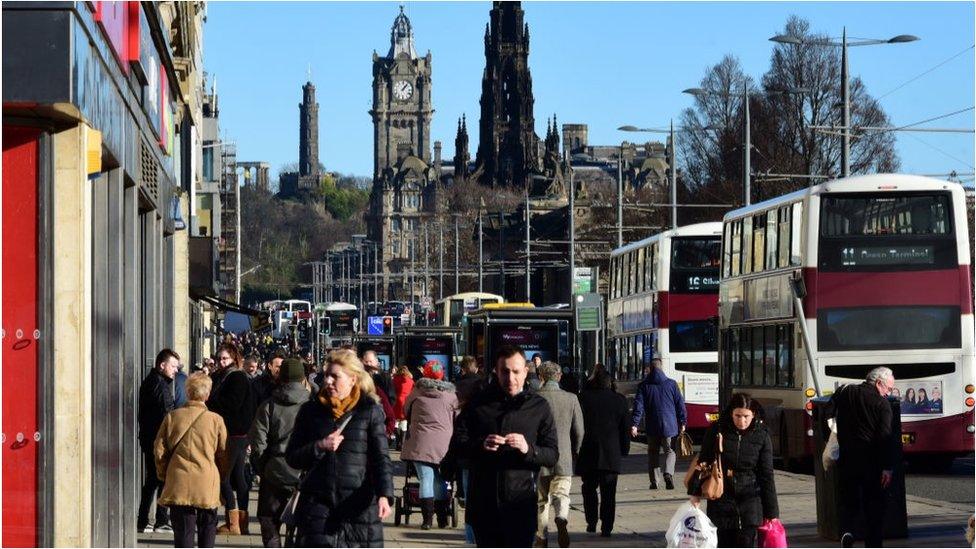
Edinburgh's city centre will be among the first places to be offered 5G by O2
It said consumers can expect faster download speeds and greater reliability if they purchase a compatible handset.
But Mr Evans said O2 also hopes companies will be early adopters, and had already struck a deal with Northumbrian Water.
"We're working with them on 5G smart sensors so that they can use that to detect leakage and water quality, and manage their network better," he said.
BT and Vodafone already offer 5G services of their own and Three is set to follow in August.
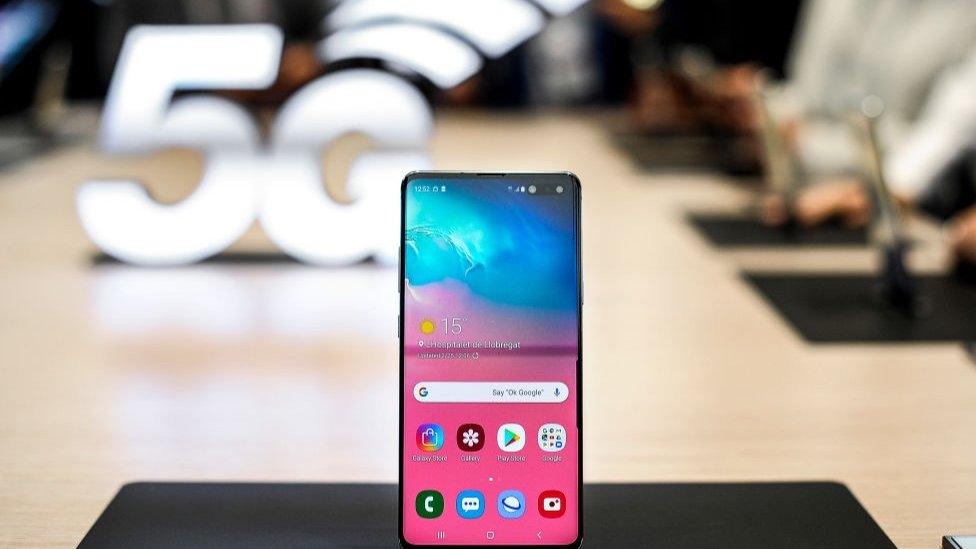
O2 will offer handsets from Samsung and Xiaomi among its initial range of 5G-compatible phones
But one industry-watcher said that O2 should not be at a disadvantage by being the last to act.
"There's been a lot of talk about speed, but actually there aren't the apps and services there for customers to tap into that in any great way yet," said Kester Mann from the consultancy CCS Insight.
"So, these are just the very first steps in a 5G marathon."
Fragmented spectrum
O2's 5G news coincided with the release of its first-half results.
They revealed a 5.1% annual rise in sales, totalling £2.98bn ($3.8bn).
Its number of customers - including those signed to Giffgaff, Tesco Mobile, Sky Mobile and Lycamobile, which piggyback O2's network - rose by 3.6% to 33.3 million accounts.
Mr Evans also used the opportunity to criticise Ofcom's departing chief, Sharon White.
He said the regulator should have ensured 5G wave-bands were divided up so that each operator got a contiguous block of spectrum rather than holding auctions that are set to leave most firms with fragmented frequency ranges.
The result, he explained, was that 5G's performance might not be as good as it could have been.
"The regulator hasn't got the balance right for our sector," he added.
"[She] has been very much focused, understandably, on providing customers value.
"I do believe, though, however, that the regulator should also look at how they can support or enable the industry to accelerate investment and make the best use of what we have."
He acknowledged, however, that Ofcom is at least consulting on whether the spectrum can be "defragmented" by encouraging the networks to trade the blocks among themselves, external post-auction.
- Published25 July 2019
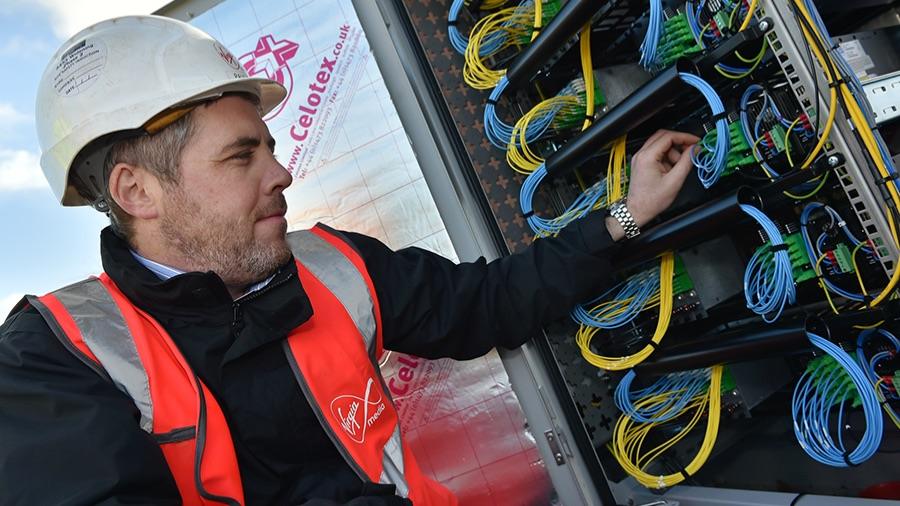
- Published22 July 2019
